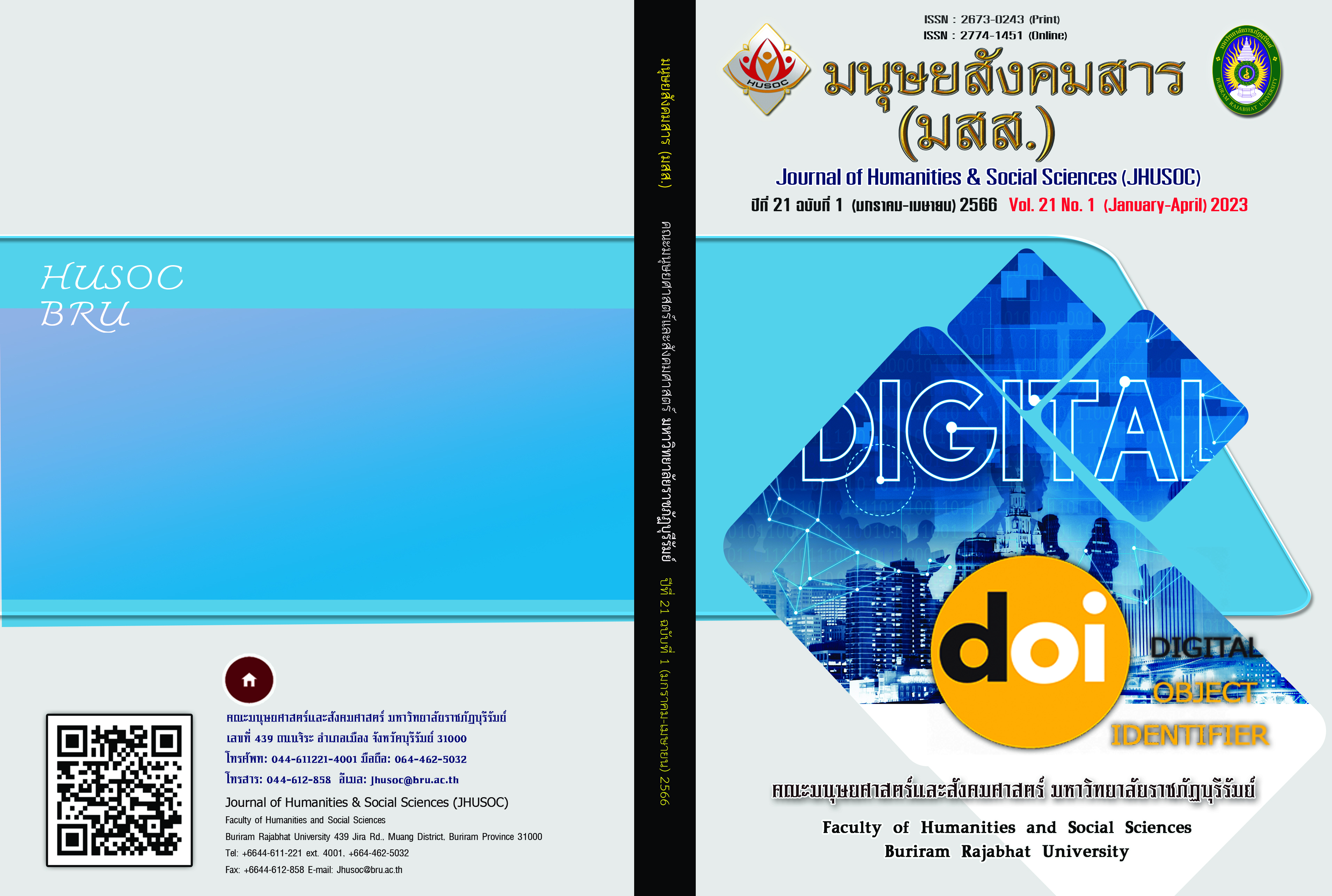The Foresight of English for Community-Based Tourism (CBT): A Case Study in Nam Nao District, Phetchabun Province, Thailand
Main Article Content
บทคัดย่อ
This study aims to develop an appropriate foresight model of English for community-based tourism (CBT) in Phetchabun province. Seventeen participants were selected by purposive sampling method. The majority of them have been active with CBT for more than three years and have made important contributions to its evolution. The instruments used in this study were semi-structured interviews, document analysis, participant observation, and focus group discussion based on the ethnographically-informed method. The data were analyzed by content analysis and thematic analysis. There are two main findings on the role of English for CBT in the community and the appropriate foresight model of English for CBT in Phetchabun province. Regarding the role of English used by local entrepreneurs in the community was found that the English language becomes a lingua franca between CBT entrepreneurs and international visitors. Most entrepreneurs have a strategy for communication if they do not understand each other for example, using body language and Google Translate. In terms of the foresight model, the results reveal the following three scenarios. Firstly, “Driven Machinery” is compared to the need for English proficiency of CBT entrepreneurs. Second, “CBT Market” is implied as English for public relations in CBT. Finally, the “Community Learning Hub" is referred to the potential for CBT entrepreneurs in using English to communicate by utilizing the capacity of community members to support the community as well as develop a learning culture and autonomous learning, particularly in English language skills.
Article Details

อนุญาตภายใต้เงื่อนไข Creative Commons Attribution-NonCommercial 4.0 International License.
เนื้อหาและข้อมูลในบทความที่ลงตีพิมพ์ในวารสารทดสอบระบบ ThaiJo2 ถือเป็นข้อคิดเห็นและความรับผิดชอบของผู้เขียนบทความโดยตรงซึ่งกองบรรณาธิการวารสาร ไม่จำเป็นต้องเห็นด้วย หรือร่วมรับผิดชอบใดๆ
บทความ ข้อมูล เนื้อหา รูปภาพ ฯลฯ ที่ได้รับการตีพิมพ์ในวารสารทดสอบระบบ ThaiJo2 ถือเป็นลิขสิทธิ์ของวารสารทดสอบระบบ ThaiJo2 หากบุคคลหรือหน่วยงานใดต้องการนำทั้งหมดหรือส่วนหนึ่งส่วนใดไปเผยแพร่ต่อหรือเพื่อกระทำการใดๆ จะต้องได้รับอนุญาตเป็นลายลักอักษรจากวารสารทดสอบระบบ ThaiJo2 ก่อนเท่านั้น
เอกสารอ้างอิง
Anupunpisit, V., Suwandee, S., Wetcharungsri, P., & Sukjaroen, N. (2016). Foresight of Thai nurses in ASEAN economic community. Journal of The Police Nurses, 8(2), 119-128. [in Thai]
Boonyued, S., Chaisena, M., & Liengjindathaworn, O. (2016). The scenario of academic resources and information technology center, Rajabhat University in the next decade (2015-2025). Journal of Library and Information Science Srinakharinwirot University, 9(2), 1-16. [in Thai]
Braun, V., & Clarke, V. (2006). Using thematic analysis in psychology. Qualitative Research in Psychology, 3(2), 77-101.
Jaroensak, T., & Saraceni, M. (2019). Elf in Thailand: variants and coinage in spoken elf in tourism encounters. REFLections, 26(1), 115-133.
Kirkpatrick, A. (2010). English as an asia lingua franca and multilingual model of elt. Cambridge: Cambridge University Press.
National Innovation Agency (2019). Foresight tools. https://ifi.nai.or.th/649/
Popper, R. (2008). How are foresight methods selected? Foresight, 10(6), 62-89.
Seidlhofer, B. (2011). Understanding English as a lingua franca. Oxford: Oxford University Press.
Sukjaroen, N. (2019). Foresight. Rajabhat Maha Sarakham University Journal, 13(3), 33-42. [in Thai]
Sukumal, P., Lincharoen, U., & Panawong, C. (2018) Scenarios of Mahachulalongkornrajavidyalaya University in the decade. Journal of Graduate Studies Review, 14(1), 137-161. [in Thai]


